 So many values and virtues, which came from the appearance and presence of Christianity in the world 2,000 plus years ago, in our culture, exist today as noble and ideals amongst society, so much so that the intent of Jesus’ Blesseds are now tempered, eased, toned down, dulled, softened. Their bite taken out. Their edge taken off—so that their radical, self-righteous slaying, Christendom destroying, idol bashing, social leveling, culture reversing power is missed and dismissed by much of the church and ignored as simplistic and assumed platitudes by modern crowds. The gospel is actually missed.
We exist at a time when the Cheshire cat smile of these Beatitudes exist (in vague social and cultural forms and weak values and virtues, and, even, as political correctness); but the cat (i.e., the intent Jesus had in the first place) is all gone. These verses, Matthew 5:3-12 (above), were the most oft quoted, referred to, and referenced New Testament texts in the first 150 years of the church. They were the call (invitation) to the faith, the test of faithfulness, and the bane and annoyance of existing powers. You want to know how Christianity spread so rapidly and the church increased beyond imagination in the first 150 years--they actually believed the Beatitudes. And, did them. The early believers, mostly poor and lacking resources, small and powerless and often hidden, lived the life the Beatitudes described, endured attacks against the message they implied, and, as a result, out-lived an empire. Our problem now, is we like the smile but care not the cat has disappeared. We've turned much of the Beatitudes 180° degrees from their original intent that they no longer slay us nor confront the culture (or the church) with all its social hierarchy and status, its vertical world. The Beatitudes are interpreted and used in ways so that the rich, famous, elite, the educated, the privileged and advantaged are comforted to think that they are, as well, “poor in spirit," so they get to keep their privilege and advantage (as long as they recognize their "spiritual poverty"). The privileged get to continue in the culture and social structures that gave them their advantage. Heck, theirs is the kingdom! Now and in the future. Who wouldn't want that deal? The Beatitudes are not a platform for your privilege, fame, celebrity, or power . . . they are to disturb everything that made you, that enabled you to have social status, to destroy every advantage you have had to enjoy the privileges you have . . . the Beatitudes level, they turn (for those who believe the kingdom of heaven has come) the verticalization of this social and cultural world (with all its advantages) and horizontalizes everything. If the Beatitudes don't do this to you, then you are seeing just the Cheshire cat smile. The cat is gone. 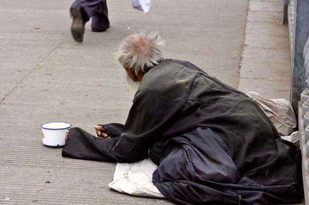 How do the rich, affluent, powerful, and wealthy break and destroy the idols that blind them and make them deaf? They accept the invitation to a kingdom, the kingdom of heaven, where the poor in spirit (the actual poor among them, the outcasts, marginal, uneducated, the sick, infirmed, and afflicted, and mentally unstable; cf. Matthew 4:24-5:1); where those who mourn for lack of recourses; and, where the meek, that is the powerless, have the kingdom, will be comforted, and shall inherit the earth. This is the kingdom to which the affluent, wealthy, and the advantaged, that is the powerful and resource-rich are invited. Of course, these lines in the list of Beatitudes are for all who seek first God’s kingdom and his righteousness. I am here focused on the powerful and resource-rich who hear this gracious invitation to the kingdom of Heaven. This is the kingdom to which the powerful and resource-rich are invited, a kingdom where they thirst and hunger for justice [yes, that’s exactly how I believe Jesus meant it]; where they will extend mercy because it is the merciful that will receive mercy; where the clean in heart make room for the unclean, because they see God; where they will be peace-makers, because they will be called Sons of God. This is an impossible invitation: for those who have been made blind and deaf and immovable because of their idols, these need the gospel, the power of God unto salvation. This is why Jesus died on that cross. This is the way in which God changed the world—really, the way in which he brought into existence, the reality of his recreated world, his kingdom of heaven. Yet, still, these words of the Beatitude are an invitation, waiting for you, through the gospel of Jesus Christ, to accept. In the end, both at our death and at the end of time, this is the kingdom that matters, the only kingdom that will remain. It is the kingdom of heaven to whom God, the Most High, will give to his saints (Daniel 7:18). This is why it makes sense that “the poor in spirit” are blessed, “because theirs is this kingdom.”
0 Comments
 Some more thoughts on: “Blessed are the poor in spirit, for theirs is the kingdom of heaven” (Matthew 5:3). Who are “the poor in spirit”? There is absolutely no doubt that they are, well, the poor. The context (Matthew 4:23-5:1) and the words “poor in spirit” are in the company of other objects of the “Blesseds” (i.e., the 3rd person beatitude subjects) that suggest those who are among the marginal. The phrase, “the poor in spirit,” is often turned into “everyone,” since everyone is poor in spirit, that is, we are all poor before God–you know, everyone is in spiritual poverty. Well, that simply can’t work in this text. First, it doesn’t say that. Second, that would mean Jesus meant, “Blessed is everyone since everyone is spiritually poor, for theirs (aka everyone) is the kingdom of heaven.” Nothing radical about that. Or, what's the point? And by the way, you just can’t make the text say “Blessed is everyone who recognizes they are spiritually poor . . .” either. The text simply gives no hint or translative potential for that spin. You can read into it; read back into it. But that's not what Jesus said and no exegetical fancy-foot-work (to protect and include the non-poor) can turn what Jesus said into “everyone” or “everyone who recognizes . . .” Sorry. Ain't in there to be had this way. Simply: I believe many good intentioned Christians are afraid of what it means if indeed Jesus actually said, “Blessed are the poor [the actual poor] in spirit, for theirs is the kingdom of heaven.” Yet, he did. Deal with it. Don't rob the poor of this mind blowing, culture changing, kingdom reversing, Christendom destroying, idol bashing text. And don't rob the non-poor, the rich, of the blessing that comes with realizing what kingdom God has brought about in the appearance of Jesus Christ.
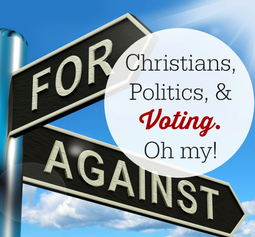 In 12 days many of us will be voting. I certainly encourage voting for a host of reasons (despite the feeling that nothing really changes anymore after we vote), but this annual trek to the polls teaches something to Christians (i.e., the habit, the liturgy of voting teaches something) and forces Christians and churches to focus on electoral politics as our (i.e., the right, left, conservative, progressive, libertarian, independent)–as our weapon of choice to bring change or to simply protect what we have so it isn't taken away. I don't like this about our politics, that is, for what it does to the church (rather, to churches) and how it makes us as Christians think this is the means we (or God) accomplishes change. Yet, think of the early church. I find, streaming from the pages of the New Testament (I believe), God's means to affect change was to personally (face-to-face, person-to-person) strengthen the weak ties among people at the table, who had never sat for a meal together before . . . strangers and unequals celebrating the Lord’s Supper, the breaking of the bread, a meal, and the lifting of a cup to remember Jesus’ death and resurrection. This table intimacy among differing, adverse, conflicting, socially unacceptable levels and classes of society met as family–where neither slave nor free, neither male nor female, neither clean nor unclean actually meant something huge and not a cliché. This is where change happened. And, it most certainly did. Unheard of change at the deepest societal levels and in the nooks and crannies of both the back alleys and in the palaces. A place where “one in Christ” carried significant social and cultural changing power. Of course I will vote on November 6th. But frankly not much will change. But what I do know that would (that will) bring about change, especially change in my community and for my neighbors, is my church, as we seek to make that table (and what it does to our actual, interactive, on the ground fellowship) a table of unequals and strangers “one in Christ.” Where in the wider community, now a gathered-church, weak ties between people need to exist to changes lives, to prosper communities, and to strengthen neighborhoods. That is how it was done post-pentecost and for the amazing first 150 to 300 years before Caesar put us in a box. Time to get out of that box. Remember we commit treason (or we should be) every time we lift that cup to remember Jesus, to proclaim his death, until he comes again.
It is so far easier for advantaged (aka privileged) Christians to identify, condemn, discipline, and correct sexual sins than it is idolatry and greed and covetousness (which is idolatry); for, these latter sins are harbored in our hearts and bank accounts, addresses, and processions. Note to those drawn above to “sexual immorality, impurity, passion . . .” (you know, but Paul says . . . ). These have more to do with how men treated women and little boys as a matter of attitude, class, and sexual enjoyment (i.e., “evil desire”), especially around the deipnon (or evening banquet-supper) common in Greco-Roman households of advantage. Paul is most certainly applying the gospel to the hierarchical relationships where men are at the center of everything and apt to do as they want, which did not bode well for women and children (especially young, pubescent boys). The sexual references (i.e., sexual the prohibitions, actually) were to undo such male (especially, advantaged male) proclivities assumed and, sadly, to well accepted in social relationships. This is what needed to be changed; thus, the references point to the sins of inequality, class, misogyny, pedophilia, and male pride. So . . . perhaps we simply go with what is easy to condemn, i.e., sexual sins, because the English words give us power to do so and we love our greed (idolatry) and think ourselves better than others at way too many levels than we, that is, advantaged Christians [dare I say, advantaged Christian men?] care to admit or to confess. No wonder the Beatitudes [yes, I know I am making what seems a long jump at a cross reference here, but it's a fair one] were centered (at least initially focused; cf. Matthew 5:3-5) on the poor, mourning, and meek, for Jesus (“seeing the crowds,” Mat 5:1; cf. 4:24) was turning the tables [yes, that’s a pun on the Lord’s Supper stolen and recreated from the cultural supper-banquet where such sins occurred]–turning the tables on us all. We, especially advantaged Christians, need to rethink sin and perhaps lament, confess, and repent of the idolatries that reside in our hearts and behaviors and bank accounts and addresses before we focus on the too-easy-to-condemn sexual sins of others.
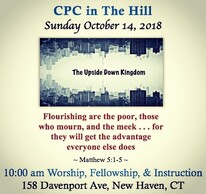 Working on the sermon for this coming Sunday morning when I noticed a dynamic parallel between the first line of the Beatitudes and Isaiah 61:1: “Blessed are the poor in spirit, for theirs is the kingdom of heaven” (Matthew 5:3). “to bring good news to the poor; he has sent me to bind up the brokenhearted” (Isaiah 61:1b) Many have noted that the Sermon on the Mount as a whole is fulfillment of or stems from the Isianic promises and in particular Isaiah 61. Matthew's Sermon on the Mount is his version of Luke's use of Isaiah 61 in Luke 4:16-19. You can see the connection between "poor in spirit" and Isaiah's parallelism of "to the poor" and "to bind up the brokenhearted."
If we turn the “poor in Spirit,” “those who mourn,” and “those who are meek” into “everyone who recognizes they are poor in spirit” and “we all mourn” and “we are all meek before God,” we rob the poor, the mourning, and the meek from the empowering words Jesus spoke. We rob the rich and powerful of the repentance and new vision of the kingdom that Jesus calls them to. We literally have taken the poor out of the “poor” and the mourning away from “those who mourn” and have turned everyone into being meek. We need to hear these beatitudes as if we are a part of that crowd (Matthew 4:23-5:3ff).
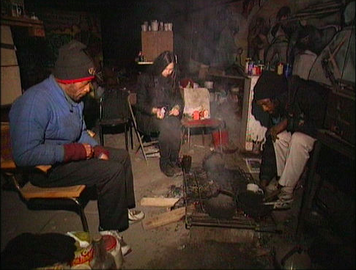 The Mole People of NYC underground The Mole People of NYC underground Some thoughts and ramblings from my sermon this past Sunday at Christ Presbyterian Church in the Hill (New Haven, CT). Our text on Sunday (9/30/18) was Matthew 4:12-22. I talked about church, church planting, and church ministry in uncool places–you know across the Jordon, out of bounds, the wrong side of the promised land, the wrong side of the railroad tracks, the Galilee of Gentiles, yeh them, those guys . . . so uncool and the wrong place to launch a movement that would change the world . . . I talked about the Hill and how outsiders view us . . . my good people let me be really real for a moment . . . and I talked about the Mole people, those cast aways, ignored, forgotten, smelly, hidden folks that live underneath New York City in the vast corridors of old train and subway tunnels . . . uncool . . . and why there isn't a line of Christians lining up for these places (the Hill and the Mole People tunnels) . . . upward mobility is a calling you know, not downward mobility (I am being sarcastic, if you can't tell) . . . where's that line of Christians called to uncool places? Then I talked about Jesus' call to follow him (Mat 4:19, "Follow me and I will make you fishers of men"). Most think this is a call to be fishers of men (whatever you think this means, it isn't); it is a call to follow Jesus and then he promises to make them "fishers of men." And, we saw right there in the story . . . they followed him (so you have the following, 4:20, 22) and then the fisher-training began (4:23 till the end of the Gospel). Matthew, in his crafting of 4:19, the command to follow actually "follow behind me," in other words, watch what I do when we are out in the public. So the fisher-training comes in this set of scenes right away:
I connected the fisher-following to the Great Commission at the end of Matthew. Gave it an intra-Matthean spin in light of the call to follow and the fisher-training: Go, therefore, and make disciples (other fisher-followers who will watch what you do, not just what you preach) of all nations (i.e., ethnic groups/πάντα τὰ ἔθνη), yes out there (to the Jewish first disciples) in very uncool places, among those polytheistic pagans, most definitely those across the railroad tracks. The Hill. The Mole People. Get lined up in those places, baptizing them in the name of the Father and of the Son and of the Holy Spirit, teaching them to observe all that I have commanded you (there's that fisher-training again). Make more fisher-followers because judgment will come (the actual thing behind the "fisher" metaphor), but be assured of this, if you go to those uncool places and make disciples, behold, I am with you always, even to the end of the age when the judgment will come upon the sons and daughters of Adam. Go heal. Be with the oppressed and afflicted. Those having seizures and cannot walk. Those in pain. This is the crowd I went to just after you followed (in chapter 4). This is being fishers of men. And this will be the same crowd, the afflicted and oppressed (note and compare Mat 4:25 and 5:1) that I will teach on that Mount (in chapter 5) is blessed. This will then show that the kingdom of heaven is at hand! For further understanding of the meaning of "fishers of men," check out this Wasted Blog >> Dangerous Sunday Devotions: Called to be fisher-followers of Jesus, emptying our advantage out for those at a disadvantage
|
AuthorChip M. Anderson, advocate for biblical social action; pastor of an urban church plant in the Hill neighborhood of New Haven, CT; husband, father, author, former Greek & NT professor; and, 19 years involved with social action. Archives
February 2024
Categories
All
|
Pages |
More Pages |
|
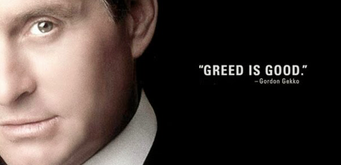

 RSS Feed
RSS Feed